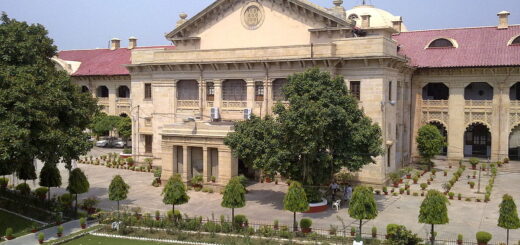Rajasthan High Court Acts on Need for Safe Toilets for Women in Public Areas.

The Rajasthan High Court acknowledged a newspaper article that reported women avoid drinking water due to concerns about accessing clean and safe toilets. The court instructed the Registry to treat this report as a Public Interest Litigation. It stressed that women have the right to safe and clean toilets in convenient locations, which is essential for their dignity. Justice Anoop Kumar Dhand, on the Single-Judge Bench, expressed disappointment that the State Government and local authorities have failed to provide these necessary facilities, leading to the publication of the article in ‘Rajasthan Patrika’ titled “Toilet Jane Ke Dar Se Kamkaji Mahilaye Kam Pe Rahi Pani.”
The Bench further observed that the available facilities for women in public spaces are minimal and do not match the needs of the female population. Not only is the basic infrastructure lacking, but what is available is also inadequate. The court noted that the legislature has outlined what the State Governments and Municipal Corporations must do to ensure the fundamental right to a dignified life. Public toilets, while simple, are crucial for making cities livable, just like any major infrastructure project. The court highlighted that women need more toilets in various locations they frequent. It pointed out that the challenges women face regarding toilet access are widespread. Public toilets for women must be user-friendly, sustainable, safe, clean, hygienic, and accessible for children, seniors, and disabled individuals. Toilet access impacts all users, but it is particularly significant for women, who make up about half of the population.
The Bench observed that women sometimes avoid drinking water when going out due to concerns about finding clean and safe toilets. It was noted that medical studies indicate that delaying urination can lead to urinary tract infections, bladder issues, and other uro-gynecological problems. The statement emphasized that the Right to Dignity and Decency ensures women are treated with respect and protects them from harassment, abuse, or violence that could harm their dignity. It is essential to foster an environment where women can live and work free from discrimination and degradation. References were made to Article 21 of the Constitution of India, the 1948 Universal Declaration of Human Rights, and the 1966 International Covenant on Economic, Social and Cultural Rights.
The matter is scheduled for January 7, 2025, before the appropriate Bench. The Bench also ordered a Show Cause Notice to be issued to the Centre, State Government, Department of Urban Development, and Department of Local Bodies. Additionally, the High Court recommended creating a comprehensive plan for building toilets, urinals, and restrooms for women in public areas, workplaces, schools, and streets, along with forming a Committee to oversee this initiative. The Bench concluded by requesting a report from the Chief Secretary of Rajasthan and the Secretary of the Ministry of Housing & Urban Affairs in New Delhi regarding the actions taken by the State and Union on this issue.
Cause Title: In Re: Dignity, Respect & Honour of Girls and Women [Case No: CW/18518/2024]








